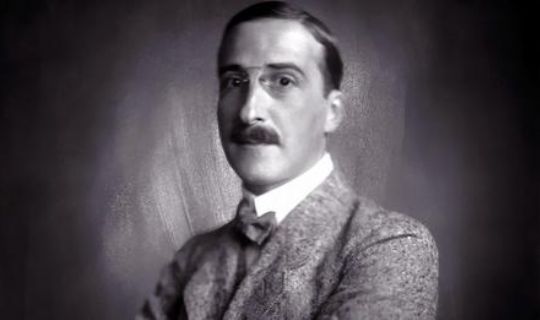
The legacy of the last humanist
In Chess, Stefan Zweigs final novel before his suicide, such an unimaginable absurd Gestapo torture is detailed.
Doesn't staying in a private room in a hotel sound good? However, think of such a hotel room that it has a bed, a chair, a sink, a window with metal bars and a door which is locked from the outside day and night. It is forbidden for books, newspapers, paper or pencils to be placed on the table.
There is no radio or television. It is an environment of complete nothingness.
What would you feel, how would you react?
In “Chess”, Stefan Zweig’s final novel before his suicide, such an unimaginable absurd Gestapo torture is detailed. Zweig features a person who is isolated from the world in a hot environment of nothingness. Rather than a method of physical torture in which tens of people are kept in crowded freezing barracks, the method of torture at hand is a Gestapo method that involves the individual and everlasting silence with the hellish emptiness of the person’s connection between the world beyond the locked door and in which there is no external infliction on the individual, rather an infliction created within the soul of the individual… In this way, they will slowly begin to lose their minds in the hellish nothingness, thereby in time untying the tongue of the “passionate” and granting the Devil the information he desires. Indeed nothing else can place pressure on the human soul as much as nothingness. How much longer could a living organism that had been convicted to inaction and nothingness resist against time that does not pass, the absolute uncertainty of when the unseen torture would end?
Zweig, would live his days as the character Dr. B whom he describes in his final work “Chess”.
The atmosphere created by the Nazis who had come to this world to commit absolute evil, the war itself and – most importantly – the uncertainty as to when the war and evil was to end and the increasing sense of despair was to push him and his lover to commit suicide during the war, in a place that was far away from the frontlines. Indeed, the greatest form of torture for fragile and sensitive souls, is the one that feeds within the depths of their souls. A fragile soul that has been sentenced to fear, concern, inaction, time that seems not to pass and nothingness, will have no other reality than to consume itself. While Dr. B from the novel in time succumbs to schizophrenia with the chess moves that he formulates within his head when faced with the nothingness, the author of the character Zweig could no longer resist this fragility. In his final letter to humanity before he took the suicide pills, he stated:
“Ending life, which is the greatest gift on this world, in due time and standing up right seems to me to be more correct. I greet all of my friends. I hope they will get to see the rosiness that will follow the long night. I, much more impatient than all, precede them...”
Yes, perhaps Zwieg acted impatiently. Three years after his suicide, evil and the Devil were to be vanquished from the earth for a long time. If he had tried to show patient, perhaps he was to lose his mind like Dr. B, or perhaps his sensitive soul would gain increased resilience through resistance. It is unknown.
The only thing known is that this famous humanist was defeated when faced with the reality of humanity but was able to shine some light on our shameful and dark world through his presence and writings..
In our present day, no matter what happens, we need to resist against the syndrome of nothingness that we occasionally succumb to and the perception that injustice will never end, so as to ensure that our souls are not ripped apart.
As we resist, we will multiply. As we multiply, those who mercilessly implement evil will fall back. As they decrease in number, humanism will gain prominence.
Then, at that time, we will win.
Have no doubt.
May courage and solidarity be ever present on our blessed path.
Related Newsss ss











